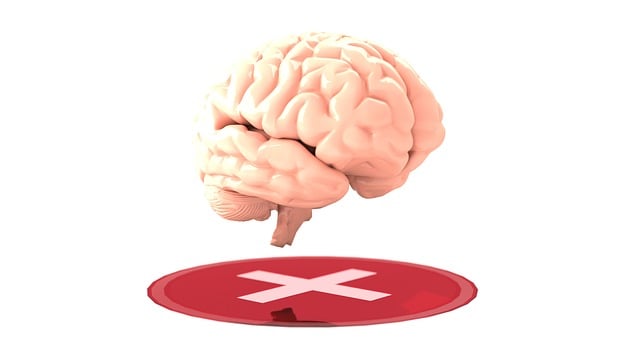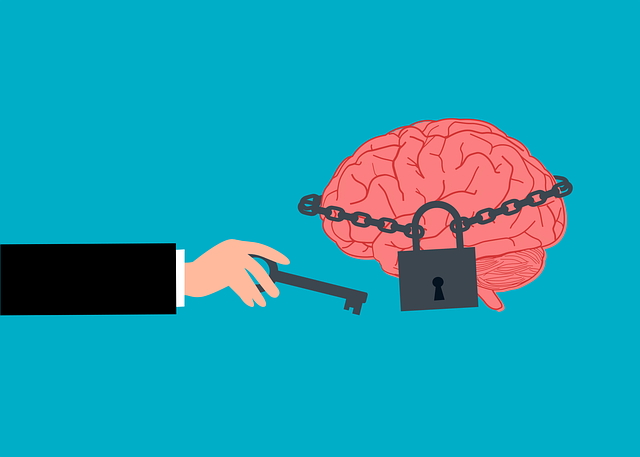Creating supportive environments is crucial for effective mental wellness groups, offering safe spaces for participants to share experiences, learn coping strategies, and build emotional connections. Facilitators must possess clear boundaries, active listening skills, empathy, and non-judgmental attitudes. Self-care practices enhance community support, leading to improved mental health outcomes, such as those sought through Littleton Adjustment Disorder Therapy (LADT). These groups facilitate emotional healing, build resilience, and cultivate lasting bonds while promoting a sense of belonging and collective empowerment. Effective facilitation requires a blend of communication skills and interpersonal prowess, including risk management, open dialogue, and interactive activities tailored to diverse learning styles. Managing behavior and conflict is essential through Emotional Intelligence and social skills development, fostering understanding and empathy. Measuring success involves holistic evaluation methods, tracking individual progress, and assessing long-term impacts on mental health awareness and adjustment.
“Explore the transformative power of group facilitation in mental wellness support. This article delves into the art of creating safe spaces for individuals grappling with various challenges, including Littleton Adjustment Disorder Therapy. We examine the role of facilitators as supportive leaders, offering skills to engage participants and navigate group dynamics effectively. From understanding group dynamics to measuring success, discover techniques to foster meaningful connections and positive outcomes in therapeutic settings.”
- Understanding Mental Wellness Groups: Creating a Supportive Environment
- The Role of Facilitators: Skills and Qualities for Effective Leadership
- Engaging Participants: Techniques to Foster Active Participation
- Addressing Challenges: Managing Behavior and Conflict in Group Settings
- Measuring Success: Evaluating the Impact of Group Facilitation Techniques
Understanding Mental Wellness Groups: Creating a Supportive Environment

Creating a supportive environment is paramount when facilitating mental wellness groups. These spaces serve as safe havens where individuals can openly discuss their experiences, share strategies for coping with challenges, and foster connections that encourage emotional healing processes. As a facilitator, it’s crucial to establish clear boundaries, ensuring every participant feels respected and valued. This involves promoting active listening, validating diverse perspectives, and fostering an atmosphere of non-judgment. Incorporating self-care practices within the group setting can further enhance the sense of community and support, ultimately contributing to improved mental health outcomes, such as those sought through Littleton Adjustment Disorder Therapy.
Mental wellness groups offer a unique opportunity for individuals to navigate complex emotions and build resilience. Facilitators play a pivotal role in guiding these journeys by creating environments that encourage open dialogue about mental health challenges, including aspects often overlooked in traditional Mental Health Policy Analysis and Advocacy. Through interactive activities, guided discussions, and peer support, group members can develop tailored coping mechanisms, boost self-esteem, and cultivate lasting bonds. This collective experience not only accelerates individual emotional healing but also promotes a sense of belonging and collective empowerment.
The Role of Facilitators: Skills and Qualities for Effective Leadership

Effective mental wellness group facilitation requires a unique blend of skills and qualities from leaders. Facilitators act as guides, creating a safe and supportive environment where participants feel empowered to share their experiences and engage in meaningful discussions. A key aspect is exceptional communication strategies, enabling them to articulate ideas clearly, actively listen, and foster open dialogue. This involves demonstrating empathy, understanding, and patience, which helps build trust among group members struggling with conditions like Littleton Adjustment Disorder Therapy (LADT).
Beyond communication, successful facilitators possess strong interpersonal skills, allowing them to navigate complex dynamics, manage conflicts, and create a sense of community. They should be adept at risk management planning, anticipating potential challenges and implementing strategies to ensure the safety and well-being of all participants. This is crucial for facilitating sensitive conversations and managing emotional intensities that may arise during group interactions. Effective leadership in mental wellness coaching programs development relies on these skills, ultimately enhancing the therapeutic experience.
Engaging Participants: Techniques to Foster Active Participation

In facilitating mental wellness groups, engaging participants actively is key to creating a supportive and therapeutic environment. One effective technique involves encouraging open dialogue by posing thought-provoking questions. Facilitators can start with broad topics related to experiences with stress or mood management, allowing members to share their personal stories. This not only fosters a sense of community but also provides valuable insights into the diverse strategies each individual employs for coping.
Additionally, incorporating interactive activities and exercises tailored to address specific issues, such as Burnout Prevention Strategies for Healthcare Providers, can be immensely beneficial. For instance, group discussions on stress management techniques or mood-regulating practices enable active participation by everyone. These engaging approaches cater to different learning styles, ensuring that each member feels involved and empowered to contribute, ultimately enhancing the effectiveness of Littleton Adjustment Disorder Therapy sessions.
Addressing Challenges: Managing Behavior and Conflict in Group Settings

Managing behavior and conflict within group settings is a pivotal aspect of facilitating mental wellness. As groups gather, diverse personalities and experiences converge, creating dynamic interactions. However, this diversity can also present challenges, particularly when dealing with individuals struggling with conditions like Littleton Adjustment Disorder. Facilitators must be adept at recognizing and addressing these issues promptly to maintain a safe and supportive environment.
Emotional Intelligence plays a crucial role in crisis intervention guidance. Training in social skills development is invaluable for teaching members effective communication strategies, conflict resolution techniques, and emotional regulation methods. By integrating these approaches, facilitators can foster understanding and empathy among group members, thereby mitigating potential conflicts. This, in turn, strengthens the therapeutic bond within the group, creating a more harmonious atmosphere conducive to mental wellness exploration and growth.
Measuring Success: Evaluating the Impact of Group Facilitation Techniques

Measuring success is a vital aspect of group facilitation, especially when addressing mental wellness. The impact of techniques like those used in Littleton Adjustment Disorder Therapy goes beyond immediate outcomes; it’s about fostering sustainable emotional well-being promotion techniques that resonate with participants. Facilitators should adopt holistic evaluation methods to assess both the short-term and long-term effects on individuals’ mental health awareness and overall adjustment.
This involves integrating feedback from group members, tracking individual progress over time, and measuring changes in burnout prevention strategies for healthcare providers. By gauging improvements in coping mechanisms, stress management, and social support networks, facilitators can validate the effectiveness of their approach. Such evaluations not only enhance the quality of group therapy sessions but also contribute to the broader understanding and refinement of mental health awareness practices.
Mental wellness group facilitation plays a pivotal role in creating supportive environments that foster healing and growth. By understanding the dynamics of these groups, facilitators can employ techniques like active engagement and conflict management to create a safe space for all participants. As seen in the context of Littleton Adjustment Disorder Therapy, effective leadership skills are crucial for navigating challenges and measuring the positive impact of group sessions. Through continuous learning and adaptation, facilitators can revolutionize mental health support, ensuring each individual receives the care they need.












